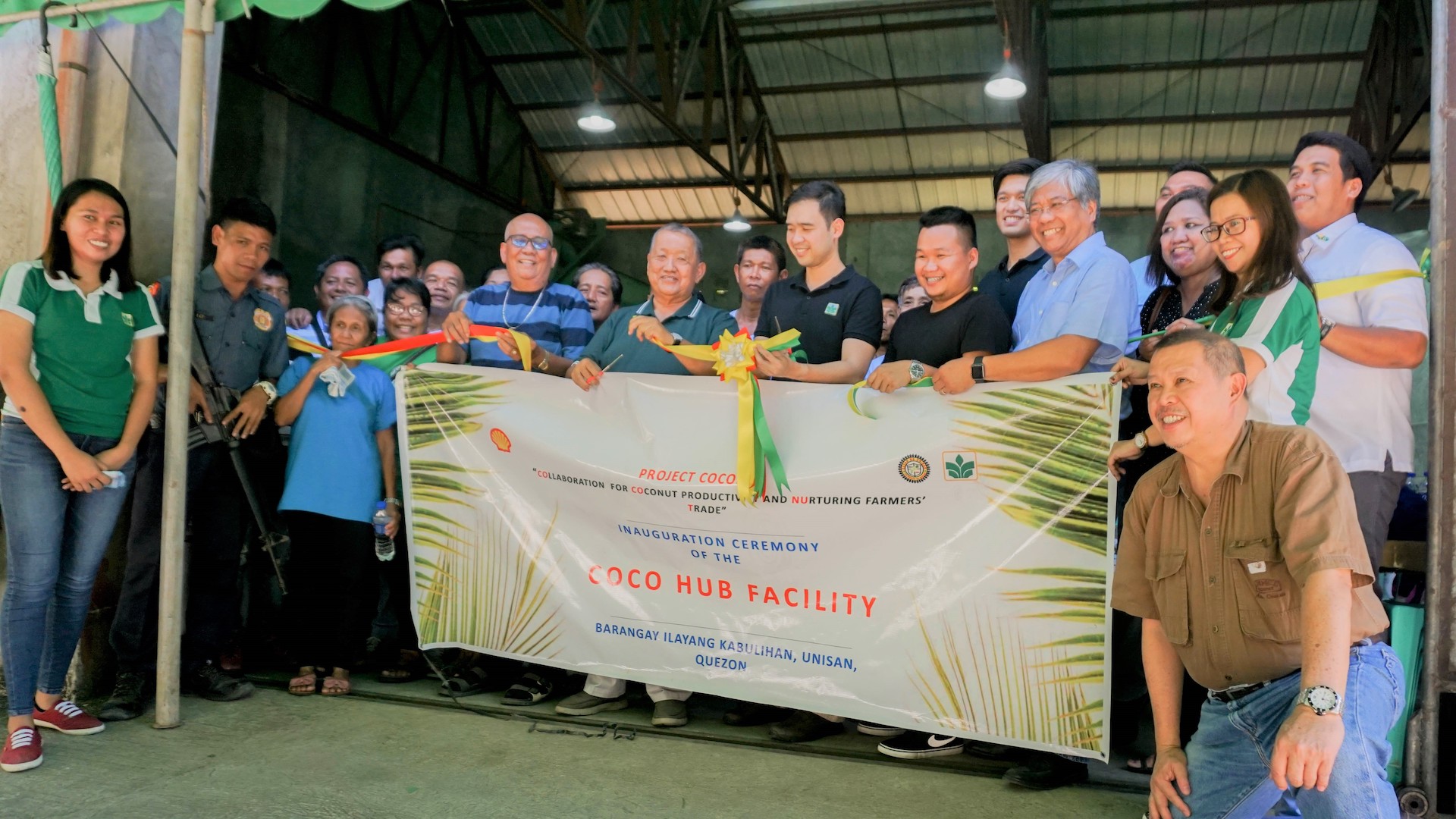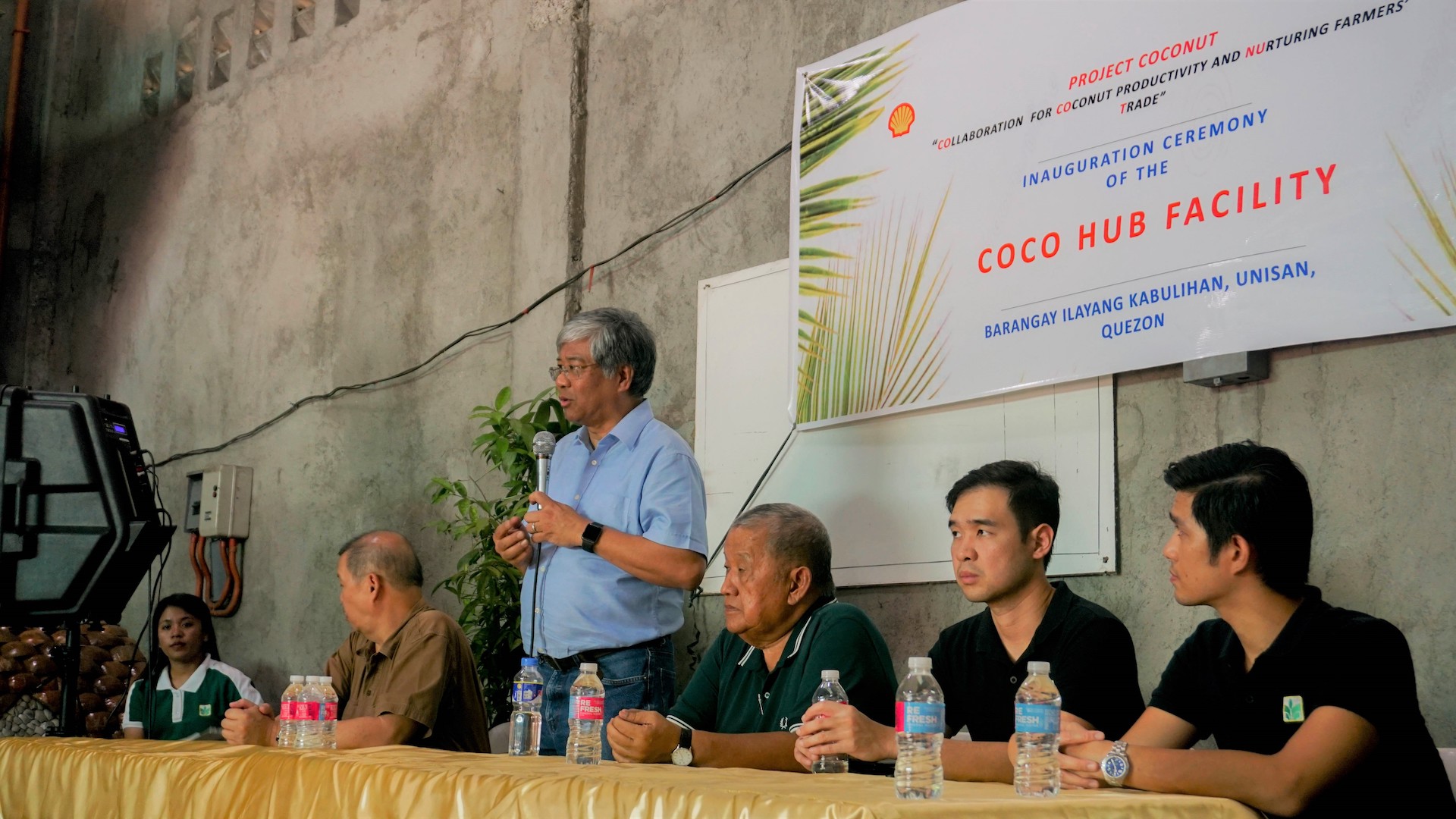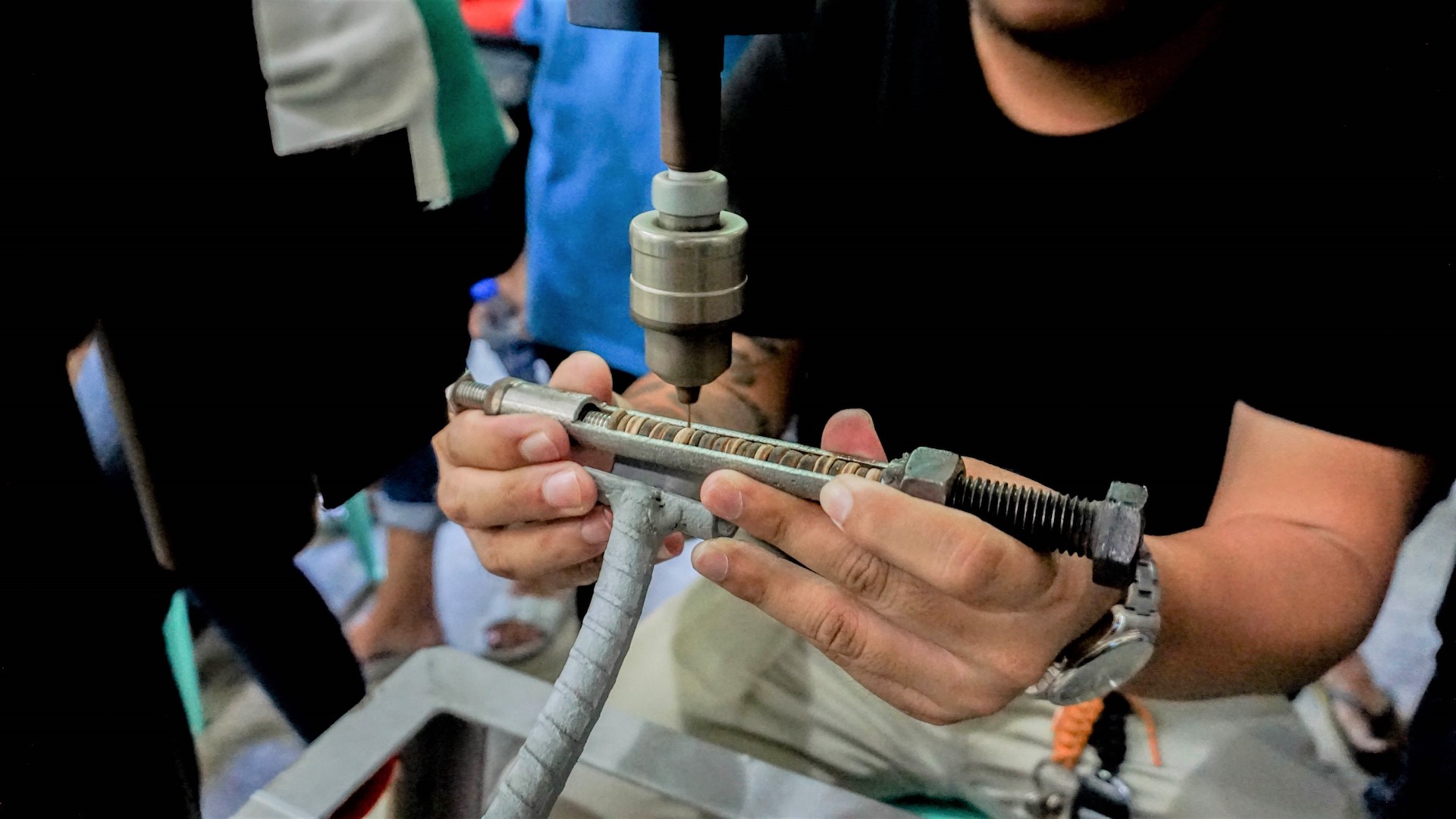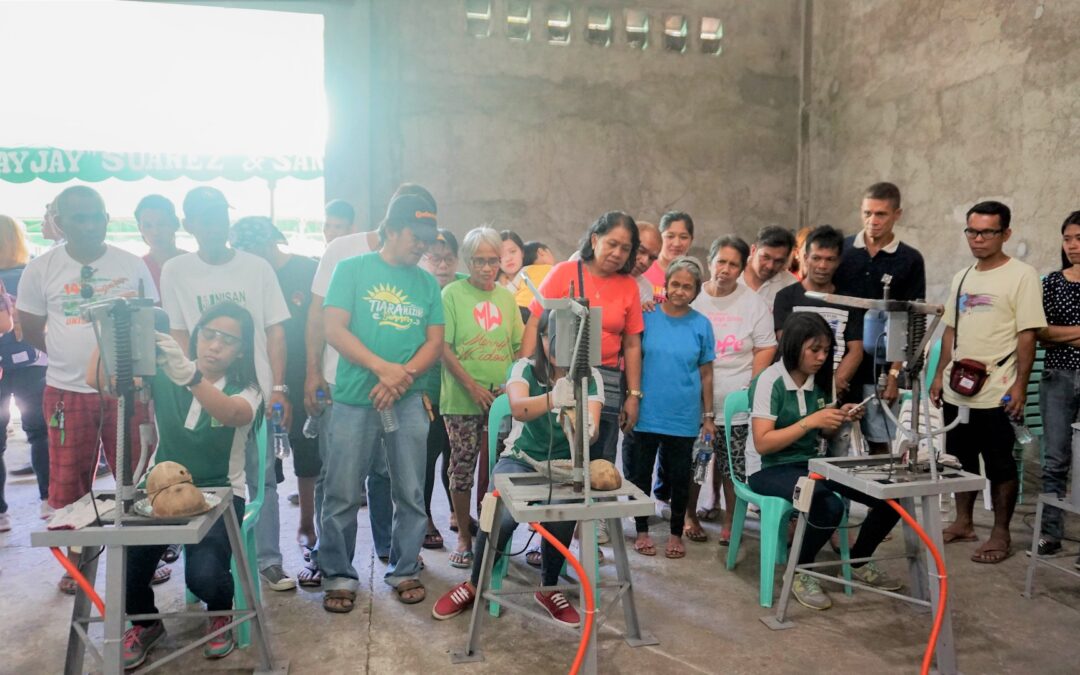Unfortunately, recent data indicates that the average farm-gate price of copra has decreased by almost 60% in the last year, from P38.50 to P15.52 per kilo (PCA, December 2018). This has caused triple the struggles to make ends meet for millions of coconut farmers and their families. Not only is it difficult for them to fasten up the planting and harvesting process (each tree only bares 40-120 nuts per year, depending on the type of seed planted), but they are grappling to find ways to trade them for reasonable costs too.

The COllaboration for COconut Productivity and NUrturing Farmers’ Trade (COCONUT) Sustainable Livelihood Program, or Project COCONUT, is an initiative to work with farmers in improving their lives through the increase of their income. Since its launch late last year, the program has already established a cooperative and has conducted a series of trainings in farm management and innovative income opportunities using different coconut processing methods.
As part of its advancements, Project COCONUT launched its first ever COCO Hub Facility in Ilayang Kabulihan, Unisan, Quezon on April 22, 2019. The COCO Hub Facility serves as the farming community’s venue to process coconuts into more profitable material. PSPC, JNJ Industries, PCA and the local farming cooperative commits themselves to the 3-year program (and beyond) and expresses their positive anticipation for its results.
During the inauguration, PSFI Executive Director Sebastian Quiniones emphasizes on the collaboration between the various entities as key to the projects’ success. He ensures the farmers that the foundation is truly dedicated to the partnership, “Ang partners ay andito para tumulong, at patuloy namin susubukan na makatulong gumawa ng dagdag pang mga programa. Patuloy nating pagaaralan sama-sama ang mga pangangailangan at kalakasan ninyo, kasi ang gusto namin ay sa tuwing pumapasok ang PSFI sa isang komunidad, hindi lamang kami dumadating at umaalis. Naniniwala kami na dapat magkakasama natin tinatahak ito.” (The partners are here to help, and we will continue to try helping through the creation of more programs. We will continue to study the needs and strengths of your community together, because what we want is for PSFI to not only come and go from communities. We believe that we should take on this together.)


Farmers of Unisan, Quezon showed their enthusiasm for this new way of earning income and continuously thank their partners for the support. Ray John Belleza, the Chairman of Unisan Atimonan Cocofarmers Cooperative shared the process of being able to reach this point of accomplishment as a community, “Magkakaiba po ang response ng mga farmers dito, dahil syempre yung iba ay nanggaling na sa ibang cooperative at nabigo lang. Pero positibo po talaga ang tingin namin sa project na ito dahil tinutulungan po kami ng LGU, ng Shell at ng JNJ ng 100%.” (Farmers have different responses because of course, some already came from cooperatives that only failed. But we are truly positive about this new project because the LGU, Shell and JNJ helps us 100%).
Sources:
IS COCODIESEL THE ANSWER TO THE PRAYERS OF FILIPINO FARMERS?
https://www.shell.com.ph/media/media-releases/2018-media-releases/is-cocodiesel-the-answer-to-the-prayers-of-filipino-farmers.html
Project COCONUT launched in Quezon
https://news.mb.com.ph/2018/06/06/project-coconut-launched-in-quezon/
101 Reasons to Use Coconut
https://www.choosephilippines.com/specials/lists/243/coconut
Copra prices continue to tumble
https://business.inquirer.net/261977/copra-prices-continue-to-tumble

